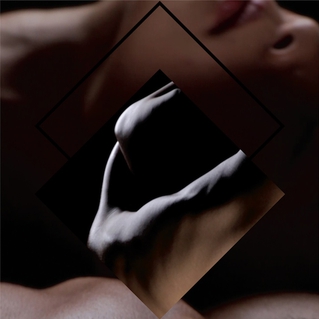Movement is one of those lovely surprises that makes you think, "Of course that’s how music should sound right now". It’s a curious one: a trip through intimate electronica, acid-y techno and pure vocal composition, with a duration and musical arc somewhere between an EP and an LP (an MP?). But while Herndon is obviously literate in these forms, her configurations and tones are unique. Above all, you can hear how old distinctions – between the dancefloor and academia, physical and virtual life, public and private space – have deliquesced in recent years. Movement slips between situations without friction.
In these respects it makes a good companion piece to Laurel Halo’s _Quarantine_. Where that album felt like a travelogue through digital space, Halo’s raw laments punctuating the foggy byways and abruptly imposed or bridged distances set up by her production, Movement is more like an anatomical documentary. Imagine MRI scans of someone’s throat in action, taken over the course of a day – digitally processed voices run through all Herndon’s varied moments, to ecstatic and occasionally queasy effect. There aren’t any lyrical signposts to put your mind at ease; the body calls the shots through sound alone.
For all the soft machinery it lays bare, Movement turns out to be a sanguine, if heady, celebration of the body-tech interface. The ambiguously titled ‘Terminal’ opens with an ominous bass pulse building around a steady digital swish, paced like deep breathing: we could be leading up to the terminal breath, or anticipating take-off. But ‘Fade’ breaks the tension with cavernous techno, building with rolls of handclaps and climaxing in rounds of Herndon’s signature vocal sprites. Then, the curveball: ‘Breathe’, six minutes of treated breathing circled by demonic/angelic digital entities. On a first listen, it could alarm you like someone else’s asthma attack. On a second, pleasure might take over. When you concentrate on your own breath for a minute or two it’s likely you’ll panic initially, wanting to control the unconscious action your life depends upon. This response soon subsides to a calmer state of mind, and awe at the process itself. ‘Breathe’ is like that by proxy. The only record it reminds me of at all is Teresa Rampazzi’s little-heard _<a href=http://thequietus.com/articles/01780-teresa-rampazzi-musica-endoscopica-album-review" target="out">Musica Endoscopica, an early electronic soundtrack for a filmed gastroscopy.
Herndon’s CV makes sense of Movement‘s mixture: five years in Berlin, where club time stretches to days and there’s always electronic music in the air; then studying composition near San Francisco, the source of her favoured Max/MSP visual programming language. The album’s centrepiece, its deliriously funky title track, is a great example of how to enhance club music with schooled knack. Soft, bright acid riffs, luminous, shimmering high-end vox and bassy vocal ooze work their magic over an elegant cyborg heir to the DFA disco bump. It leans on pitch-shifted vocals, those space-stretching staples of funkateers since the reign of Parliament, but all the elements duck and weave so that no two bars have the same balance. A looped groove this is not.
Then it’s back to the voice: this time a baritone, modulated, spread across speakers, wordless. ‘Dilato’ makes a mysterious finale, but it does remind you the voice has long been a producer’s best friend when they’re exploring technology. Identity, soul and message are all tied up in it, and – half-baked theory time – the less explicable they become, the more penetrating the effect, whether emotional, hedonistic or just plain weird. (Off the top of my head I’d throw in Wendy Carlos , The Art of Noise, Aphex Twin, Ellen Allien and Rustie to put it to the test.) So it’s a rich area for Herndon to explore. And, on Movement, a reorientation that points a way out of Halo’s digital labyrinth: just follow your breath.


